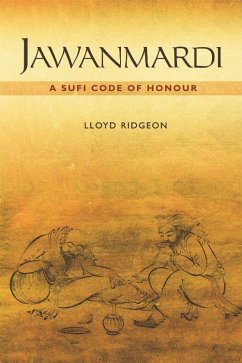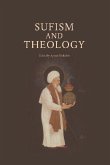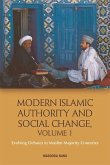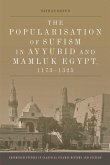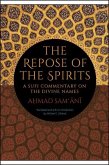Sufism attracts much attention in the West, yet its ethical dimension is often overlooked. Jawanmardi--a key element of Persian Sufism-- was the thic that encouraged the Sufi to put others before himself and to overlook the sins committed by others, thus representing a humane and liberal understanding of Islam. Many writers in the Persian tradition wrote about Jawanmardi, and this overview presents three of the key medieval texts in the original and in translation: "Kitab al-futuwwa" by Shihab al-Din Umar Suhrawardi, "Futuwwat nama" by Mirza 'Abd al-'Azim Khan Qarib, and "Risala-yi Hatim al-Tayy" by Husayn Wa'iz-i Kashifi.
AUTHOR APPROVED 'Dr. Ridgeon's annotated translation and study of three important Persian treatises on spiritual chivalry is a ground-breaking reassessment of all previous research on the subject. Written in a simple and unpretentious style and brimming with insights based on original scholarship, it conveys the tolerant breadth, ecumenical reach and sophistication of the Sufi ethics of spiritual chivalry (futuwwat/javanmardi) in Islam in a manner accessible to everyone.' Dr Leonard Lewisohn, Iran Heritage Foundation Fellow in Persian and Sufi Literature How did medieval Sufis express their system of everyday morality? Sufism attracts much attention in the West, yet its ethical dimension is often overlooked. Jawanmardi - usually translated from Persian as chivalry - was espoused by Sufis as a set of courtesies that guided one's attitude and behaviour towards society and God. It encouraged the Sufi to put others before himself and to overlook the sins committed by others, representing a humane and liberal understanding of Islam. Many writers in the Persian tradition wrote about jawanmardi and this book presents three of the key medieval texts in translation: Kitab al-futuwwa by Shihab al-Din Umar Suhrawardi, Futuwwat nama of Mirza 'Abd al-'Azim Khan Qarib, and Risala -yi Hatim al-Tayy by Husayn Wa'iz-i Kashifi. The texts are drawn from across the medieval period, reflecting different timeframes and audiences. This allows the reader to identify shifts in the ethic of jawanmardi and Sufism more generally. Key Features The first English translations of 3 major texts in Sufi ethics An introduction highlights the main contours and developments of jawanmardi Each text is prefaced by a contextualising introduction including information about the author and his times The texts reflect the political, social and gender issues of the time Lloyd Ridgeon is Reader in Islamic Studies at the University of Glasgow. He is a
Hinweis: Dieser Artikel kann nur an eine deutsche Lieferadresse ausgeliefert werden.
AUTHOR APPROVED 'Dr. Ridgeon's annotated translation and study of three important Persian treatises on spiritual chivalry is a ground-breaking reassessment of all previous research on the subject. Written in a simple and unpretentious style and brimming with insights based on original scholarship, it conveys the tolerant breadth, ecumenical reach and sophistication of the Sufi ethics of spiritual chivalry (futuwwat/javanmardi) in Islam in a manner accessible to everyone.' Dr Leonard Lewisohn, Iran Heritage Foundation Fellow in Persian and Sufi Literature How did medieval Sufis express their system of everyday morality? Sufism attracts much attention in the West, yet its ethical dimension is often overlooked. Jawanmardi - usually translated from Persian as chivalry - was espoused by Sufis as a set of courtesies that guided one's attitude and behaviour towards society and God. It encouraged the Sufi to put others before himself and to overlook the sins committed by others, representing a humane and liberal understanding of Islam. Many writers in the Persian tradition wrote about jawanmardi and this book presents three of the key medieval texts in translation: Kitab al-futuwwa by Shihab al-Din Umar Suhrawardi, Futuwwat nama of Mirza 'Abd al-'Azim Khan Qarib, and Risala -yi Hatim al-Tayy by Husayn Wa'iz-i Kashifi. The texts are drawn from across the medieval period, reflecting different timeframes and audiences. This allows the reader to identify shifts in the ethic of jawanmardi and Sufism more generally. Key Features The first English translations of 3 major texts in Sufi ethics An introduction highlights the main contours and developments of jawanmardi Each text is prefaced by a contextualising introduction including information about the author and his times The texts reflect the political, social and gender issues of the time Lloyd Ridgeon is Reader in Islamic Studies at the University of Glasgow. He is a
Hinweis: Dieser Artikel kann nur an eine deutsche Lieferadresse ausgeliefert werden.

